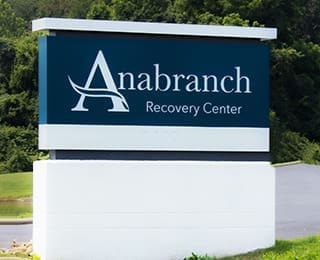As a parent, you want your child to be happy, healthy, and safe. Part of that means preparing them for living in the real world by talking to them about difficult subjects, such as drug and alcohol addiction. Sadly, many children have a parent or loved one with a substance use disorder and are frightened and confused. These children need to understand addiction so that they can feel safe and know it is not their fault.
How Does Addiction Affect a Child?
Children living with a parent or loved one addicted to drugs or alcohol are affected in many ways. They often find life unpredictable, difficult, and confusing. As they deal with the daily chaos and uncertainty of their life, they are left feeling insecure and frightened. They may feel angry, sad, lonely, and embarrassed. They may feel alone and abandoned because their parents are not emotionally there for them. Many suffer from emotional or physical abuse and neglect. Others try to keep the family secrets and carry shame and guilt with them. Some children even believe that the drug or alcohol use is their fault.
How to Talk to a Child About Addiction
Ignoring the problem of addiction does not make it go away. Children know something is wrong. Whether you are a non-addicted parent, a caring family member, or a teacher, knowing the right way to talk to a child is critical. Before you have the conversation, take the time to educate yourself so you can give the child accurate and honest information.
Keep it Appropriate to the Child’s Age and Maturity Level
When you are talking about addiction, the information you provide and how you say it depends on the child’s age and maturity level. It is essential to explain drug and alcohol addiction in an age-appropriate, simple way. For example, to a five-year-old, you could say addiction is a strong feeling to do something that is hard to stop or control. Something that can really hurt you. To a twelve-year-old, you could say addiction is a chronic but treatable brain disease that makes changes to the person’s brain. Most importantly, reassure the child that their parents are not bad people. It is the disease they have that causes them to make bad decisions and choices.
Choose the Right Time and Place for the Conversation
Choose a time and place for your conversation with the child where you will not be overheard or interrupted. It should be private, calm, and distraction-free. Allow enough time so you will not feel rushed and so the child can ask questions. If the child’s loved one is entering an addiction treatment facility, have the conversation ahead of time if possible. Talk about the treatment and what will happen once it is completed. Let them know of any changes that will happen at home that will affect their routine, such as changes to activities or school. Let them know you will be there for them whenever they have questions or want to talk. Knowing they can have an ongoing conversation with you helps the child to feel more comfortable and secure. End your conversation on a positive note of hope.
Listen Carefully and Validate Their Feelings
Let the child tell you how they feel without trying to fix anything. By carefully listening to them and allowing them to express their feelings, you are letting them know it is okay to feel that way. Validate their feelings and let them know you understand the way addiction has affected them. Tell them you are there for them, you support them, and you will not judge them.
Core Messages to Include
The Alcohol and Drug Foundation provides several good ideas to include in your conversation:
- It is not your fault. Your loved one does not drink or do drugs because of you. You are not the reason or the cause.
- Your loved one is not a bad person. Addiction to drugs or alcohol can cause a good person to make bad choices.
- You are not alone. Many children have parents or other loved ones who have addictions to drugs or alcohol.
- It is okay to talk about your fears, concerns, and feelings even if someone has told you not to.
- It is okay to ask for help.
We Can Help
If you or a loved one struggles with an addiction to drugs or alcohol, Anabranch Recovery Center, located in Terre Haute, Indiana, can help. Our skilled professionals will guide you as you travel the path to recovery. Now is the time to take the first step. Contact us to find out how we can help.
Considering residential addiction treatment near Terre Haute? For more information about Anabranch Recovery Center, and the services we offer, please call and speak with someone today at (888) 302-8095.




